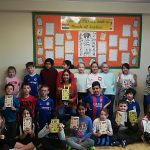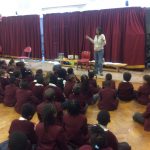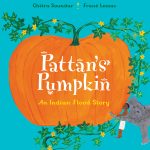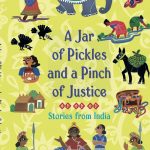Step 1: Have you found the author you want and agreed a date? Great. Now agree details with them on nu mber of sessions, the classes they would visit. Tell them a bit about why you want them to visit and what would benefit your school.
mber of sessions, the classes they would visit. Tell them a bit about why you want them to visit and what would benefit your school.
Step 2: At least a month before the author visit, reach out to the author and ask for what activities the class could do before they come. Here are some ideas:
- Read the books of the author
- Discuss the topics across the curriculum
- Inform all teachers, and librarians of the teacher’s visit
- Tell the parents about the upcoming visit and encourage them to go to their local libraries and borrow the books.
If the author shares their personalised activities, lesson plans try them out in your classes. For example, I have a website full of activities for my books.
Step 3: Two weeks before the author visit, either for the whole school or for your individual class, set up committees.
- A welcome committee – two students who are shy and need support to welcome the author on arrival and thank the author when they leave.
- A research committee – an ICT project team that will find out more about the author from their website and other safe sources.
- An art committee – a group of children who will either create posters, cards or music (or find songs) to match the books of the author.
- Logistics committee – a group that’s responsible for author’s lunch, water and other organising
- Book sales committee – a group that will design and create an order form, agree to man the till and create a sales list when done.
- Assembly committee – this could be the group of people who normally look after the projector and the assembly computers etc who will assist the author on the day.
Remember the children are improving their literacy, maths, arts and research skills all the while being proud of their committee membership.
Step 4: Order the author’s books for your school library so they arrive before the author arrives. Make sure your librarian is fully aware of the author visit and is part of your organising committee.
Step 5: Are you arranging book sales? Do you know how it will happen? If you’re unsure of this, talk to the author. Many will sell their own books and others would refer you to a local indie bookshop. Bookshops work closely with schools to deliver books to the school and take them back after the sales. Click here to find out if there’s a bookseller local to you.
Step 6: Inform parents a week before the author visit. If your school has a website or newsletter, announce it there. Make sure the order forms have reached the parents.
Step 7: Remind the children and parents the night before the author visit and create a buzz. Get the children to prepare questions for the author. Remember, many authors already have a lot of info o

n their website. Encourage the children to ask something different. Authors love it when they have to think about the answer.
Step 8: On the day, do show the author where the toilets are, staff-room is and how they could make a cup of tea. If you’re providing lunch, explain to the author how that will work and who will be their escort.
Step 9: During the assembly and workshops, be present and engaged. Don’t cut into the author’s time or interrupt them for disciplining the children often. If the children are motivated through the above steps, they would be listening to every word the author utters.
Remember to get your library books signed too. Authors would gladly do so even in their lunch hour or as they wait for children to buy books.
 Arranging an author visit is a lot of work. The trick is to delegate much of the preparation to the children, thereby empowering them to be leaders, managers, public speakers and volunteers. Spread the responsibility across all classes and ask for help from other teachers, TAs and even your PTA.
Arranging an author visit is a lot of work. The trick is to delegate much of the preparation to the children, thereby empowering them to be leaders, managers, public speakers and volunteers. Spread the responsibility across all classes and ask for help from other teachers, TAs and even your PTA.
[slideshow_deploy id=’3333′]
An author visit can bring enormous value not just in reading for pleasure, but in so many ways if you harness its full potential.
A new term will start soon and I wish you and your children many author visits in this brand new year. If you want to find out more about my author visits, please click here.
































